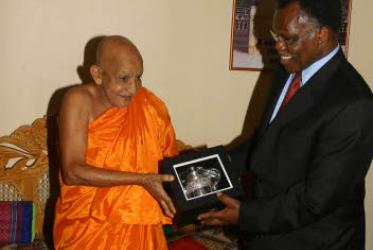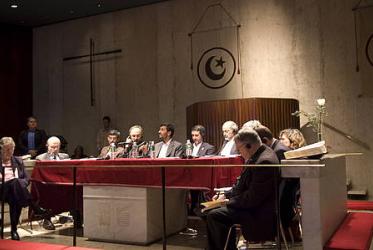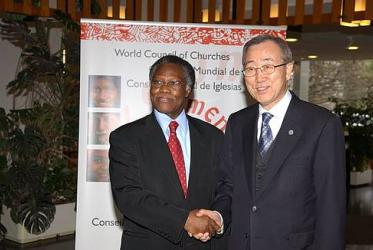Displaying 861 - 877 of 877
12 November 2008
US Christian leaders met Iranian president Ahmadinejad
28 September 2007
Robert S. Bilheimer
19 January 2007
WCC executive urges churches to exercise "unique potential" for peace
16 September 2005










